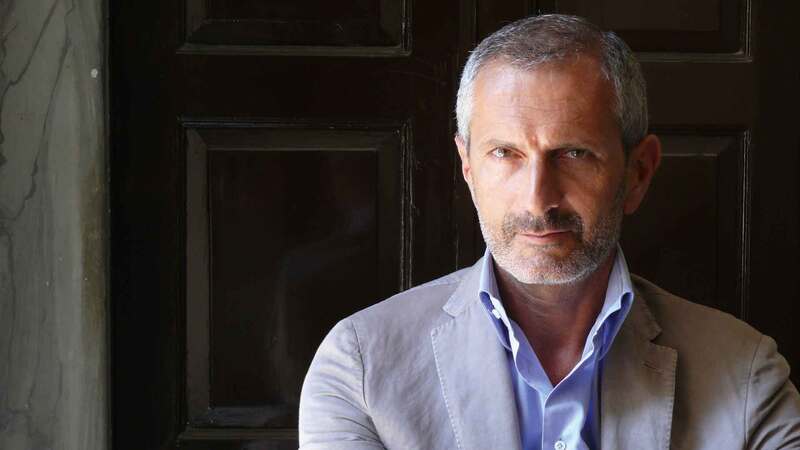You are viewing your 1 free article this month. Login to read more articles.
Desert Island Books: Antony Beevor
1. Life and Fate by Vasily Grossman
This is the War and Peace of Stalinism and the Great Patriotic War. This deliberate act of literary homage to Tolstoy uses the Battle of Stalingrad in the place of the Battle of Borodino, and there are several parallels in construction. But the characters and the terrible dilemmas they face when confronted by the moral distortions of the system are entirely the product of the "wolfhound age", as Mandelstam called it. Grossman, who had spent more time at the front than any other writer, accumulated stories, incidents and extraordinarily powerful vignettes in his notebooks for use in his novels later. The anti-semitism which emerged in Stalin’s later years convinced Grossman of the parallels between Nazism and Stalinism. This similarity became a covert but recognisable theme in his great novel. Grossman naively believed that it could be published during the Krushchev thaw, but he was soon disabused. The KGB 'arrested' the novel in 1961 after Suslov, the ideological chief of the Central Committee, declared that it must not be published for 200 years. The secret police even took the carbons and the typewriter ribbons. Grossman died a broken man, but an early copy of the manuscript had survived and it was smuggled out to be published abroad.
2. Catch 22 by Joseph Heller
Probably the most devastating satire ever written about the lunacy of war and military bureaucracy. The novel, set in Italy towards the end of the Second World War, is a triumph of construction, with a fiendishly unbreakable circle of counter-logic, as the US bomber squadron is sent on more and more missions by ambitious officers trying to exceed their objectives. In a way, their double-think is a counterpart to that of the para-Stalinist system evoked in Orwell’s dystopia, 1984. Yossarian, one of the great anti-heroes of modern literature, is bemused by the self-perpetuating madness all around him, while Milo Minderbender, the utterly corrupt administrative officer, became the memorable forerunner for the subsequent craziness of unbridled capitalism.
3. Sword of Honour by Evelyn Waugh
The only counterpart to Yossarian in British fiction is Guy Crouchback, Evelyn Waugh's protagonist in his Sword of Honour trilogy. Loosely based on his own experiences, Waugh savagely parodies the amateurishness of much of the British war effort, especially the unnecessary disaster of the Battle of Crete, which he himself survived with embittered feelings. Crouchback, a conservative Catholic like Waugh, is appalled by the wartime alliance with the Soviet Union, which he sees as no less evil than the Nazi regime. Waugh's honed prose, with deceptively understated dialogue, verges on the edge of outright satire, yet his purpose is deadly serious, even with some of his outlandish characters, such as the ludicrously pugnacious Brigadier Ritchie-Hook. This trilogy is arguably his most powerful work.
4. The Fortunes of War by Olivia Manning
The Fortunes of War comprises the Balkan trilogy and the Levant trilogy, a six-volume compendium covering the Nazi invasion of the Balkans, life in wartime Cairo, and the fighting in the Western Desert. They are based on her own experiences, escaping with her husband Reggie Smith from Roumania and Greece just ahead of the advancing German army, and finally reaching Egypt by separate ways. The second trilogy, in particular, consists of romans à clef, with many characters so thinly disguised that nobody was fooled. The trouble was that Manning, a woman easy to take offence, used these novels to revenge herself on anyone whom she felt had slighted her. (Lawrence Durrell described her as "a hook-nosed condor".) But this edge adds a piquancy to her very sharp observation of character. The Fortunes of War were brilliantly adapted for a television series starring Kenneth Branagh and Emma Thompson.
5. The Kindly Ones by Jonathan Littell
The Kindly Ones is a flawed and highly controversial novel, but it remains a masterpiece. The Kindly Ones are the Eumenides, or the Furies, and the novel is structured as a classical Greek tragedy, with the German Sixth Army, involved in the massacre of Babi Yar, meeting its fate in Stalingrad. It is written as the defiant confession of Dr Max Aue, an SS officer deeply involved in the Final Solution. Aue, a half-German and half-French lawyer and intellectual, is sent on a variety of missions. This enables him to act in the book as a sort of videocamera, with a biting voiceover. Littell’s huge and ambitious book goes where no historian dares to tread, with well-researched speculation about the mentality of those involved in the world's greatest crimes. Littell, not surprisingly, was deeply influenced by Vasily Grossman's Life and Fate. Where Littell is particularly strong, both in historical terms and as an integral part of his novel, is in his depiction of the Nazi and SS bureaucracy, with their rival departments. They are all trying to control this monstrous industry without any sense of objective factors, such as whether their decisions are helping the war effort and thus allowing the regime as a whole to survive. It is indeed a case of ‘Those whom the gods wish to destroy, they first make mad.’
6. Your Face Tomorrow by Javier Marías
Marías' monumental work, a novel in three volumes, constitutes one of the greatest works in modern European literature. His protagonist, Jacques Deza, is an anglophile Spaniard working for a secret department in London closely connected to British intelligence. Their task is to concentrate on the faces and body language of selected subjects, and by thus decyphering their characters, attempt to predict their actions in the future. Twisting like the double-helix of human DNA, shame and guilt, power and impotence, treachery and loyalty, domination and humiliation, love and hate, the past and the present all revolve in this extraordinary and unashamed novel of ideas. It is quite unlike any other work of literature.
Marías has sometimes been described as a modern Proust. This is because his prose posseses an exquisite, almost uncanny observation, recreating moments and moods in hypnotic depth. But Marías goes even further than Proust in demonstrating the lack of social certainty in a world where everyone holds their cards close to their chests. The sex that Jacques has with a colleague is consciously made deniable to themselves as well as to others. And the logic of the state itself is maintained, with the official sophistry that it is right to kill or sacrifice one individual on the grounds that many more lives will be spared as a result.
Marías’ characters are so convincing that there is a temptation to search feverishly for a roman à clef. With several familiar individuals resurfacing from previous novels, and with loose parallels to his own life in Oxford, it is too easy to see Deza as Marías’ alter ego. Also, his own father’s appearance - with echoes of the way he was betrayed and nearly executed after the end of the Spanish Civil War - and the role of Sir Peter Russell, or Wheeler, as a former Oxford intelligence player, all may mislead some readers into underestimating the sheer inventiveness and imagination of the author.
Marías’ fascination with language and the interpretation of both popular and obscure phrases cannot have made this an easy book for his translator, Margaret Jull Costa, yet she succeeds in making her miraculously faithful version read like the work of a totally bilingual writer. This important book is a triumph, both in the orginal and in this translation.
Antony Beevor's The Second World War is published on 7 June. Picture courtesy of John Carey













